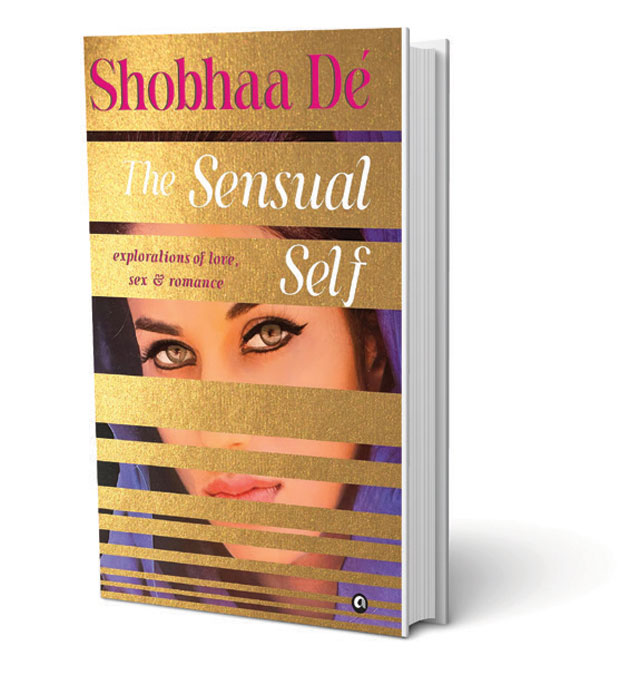The Grammar of Pleasure


SHOBHAA DÉ WRITES as if with a paintbrush dipped in desire and irony. The Sensual Self is not a manual of seduction; it is an anatomy of aliveness. Every page shimmers with the shimmer of skin, the shimmer of speech, the shimmer of self-knowledge. Dé, now in her late 70s, stands before her readers as a veteran of emotion— still curious, still mischievous, still awake to the grammar of pleasure and the poetics of pain.
She begins with laughter and ends with light. From the guava of memory to the gold of Klimt’s The Kiss, Dé converts ordinary fruits of experience into metaphors of endurance. What she really writes about is attention—the art of noticing, of lingering, of letting the body become a landscape one learns to read slowly. Her essays refuse speed. They are written for those who would rather sip than gulp.
In chapters such as ‘When Ecstasy Blooms’ and ‘The Flower Within’, Dé turns from recollection to revelation. She treats the body not as battlefield or temple but as theatre where performance, vulnerability and humour share the same stage. “Orgasms,” she reminds us, “have their uses, but they are not the be-all and end-all.” It is a sentence both clinical and comic. She dismantles the tyranny of climax, the exam-paper anxiety of performance, the absurdity of gratitude expected after sex. Her solution is civility: clean up, kiss good-bye, mean the thank you. In De’s universe, manners are the first form of eroticism.
Openomics 2026: Continuity and Conviction
06 Feb 2026 - Vol 04 | Issue 57
The performance state at its peak
Then she dives into the politics of flesh. Few Indian writers have written of the vagina with such wit and wonder. Dé calls it “the black hole of procreation and pleasure”, worshipped as yoni, shamed as sin, marketed as merchandise. She describes the booming business of “beautiful bridal vaginas” with the precision of a cultural anthropologist and the mischief of a stand-up comic. Yet beneath the satire lies empathy: the reminder that every woman’s body is her autobiography. “Find the clitoris,” she commands, half priestess, half prankster—dismantling millennia of silence with a laugh.
Elsewhere she writes of breasts and nipples with the lyricism of a still-life painter: “Let her breasts sing.” It is both instruction and invocation, a hymn to the overlooked. Dé teaches tenderness through texture—the warmth of hands, the patience of pauses, the quiet choreography of afterglow. Cuddles, she argues, are not luxury but language; rejection is a wound that memory keeps moist. Between jokes about male vanity and notes on fragrance, she builds a philosophy: that love, at its finest, is a form of mindfulness.
Her sentences strut and sigh. They oscillate between the silken and the sardonic, between temple incense and taxi-horn humour. She moves from Florence to Colaba, from French theory to grandmother’s rose ittar, from the microscope to the moonlight. The result is a map of modern intimacy—funny, fearless, feminist. In every description of skin there is also soul; in every quip, a question. What do we really seek when we seek another? Validation, velocity, or a mirror?
The Sensual Self is not a book about sex; it is a book about sense—the five that feed the sixth. Dé writes to remind us that ecstasy is not an event but an attitude, not a crescendo but a continuum. In her hands, ageing becomes aesthetic maturity, desire becomes devotion, and laughter becomes the last word of liberation.
As Diwali glows around us, Dé becomes the lamp that doesn’t flicker but deepens. She gives us radiance that burns without shame, light that refuses to hide. She invites us to see pleasure not as sin but as sanctity. This book, like the festival itself, celebrates illumination: moving from shadow into shimmer, from silence into song, from body into soul.
Reading her is like standing before a mirror framed with marigolds: the reflection intimate, irreverent, impossibly alive. Dé reminds us, especially this season, that nothing is more radical—or more luminous— than tenderness.
